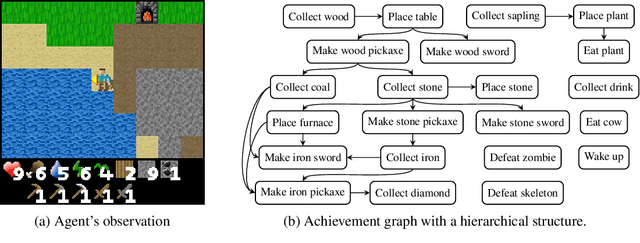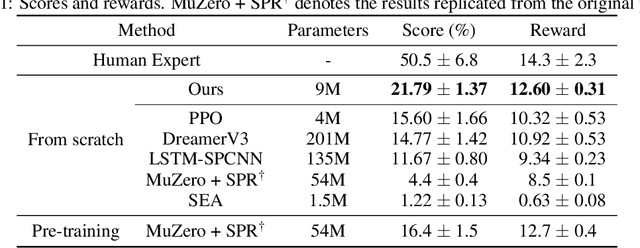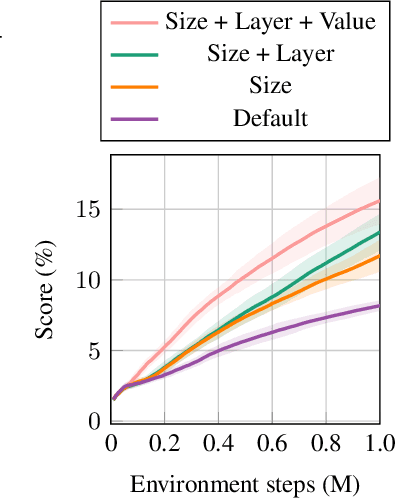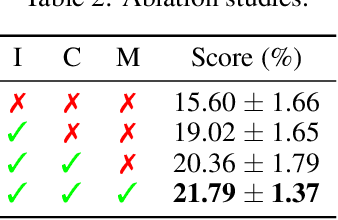Junyoung Yeom
Compressed Context Memory For Online Language Model Interaction
Dec 06, 2023Abstract:This paper presents a novel context compression method for Transformer language models in online scenarios such as ChatGPT, where the context continually expands. As the context lengthens, the attention process requires more memory and computational resources, which in turn reduces the throughput of the language model. To this end, we propose a compressed context memory system that continually compresses the growing context into a compact memory space. The compression process simply involves integrating a lightweight conditional LoRA into the language model's forward pass during inference. Based on the compressed context memory, the language model can perform inference with reduced memory and attention operations. Through evaluations on conversation, personalization, and multi-task learning, we demonstrate that our approach achieves the performance level of a full context model with $5\times$ smaller context memory space. Codes are available at https://github.com/snu-mllab/context-memory.
Discovering Hierarchical Achievements in Reinforcement Learning via Contrastive Learning
Jul 07, 2023



Abstract:Discovering achievements with a hierarchical structure on procedurally generated environments poses a significant challenge. This requires agents to possess a broad range of abilities, including generalization and long-term reasoning. Many prior methods are built upon model-based or hierarchical approaches, with the belief that an explicit module for long-term planning would be beneficial for learning hierarchical achievements. However, these methods require an excessive amount of environment interactions or large model sizes, limiting their practicality. In this work, we identify that proximal policy optimization (PPO), a simple and versatile model-free algorithm, outperforms the prior methods with recent implementation practices. Moreover, we find that the PPO agent can predict the next achievement to be unlocked to some extent, though with low confidence. Based on this observation, we propose a novel contrastive learning method, called achievement distillation, that strengthens the agent's capability to predict the next achievement. Our method exhibits a strong capacity for discovering hierarchical achievements and shows state-of-the-art performance on the challenging Crafter environment using fewer model parameters in a sample-efficient regime.
 Add to Chrome
Add to Chrome Add to Firefox
Add to Firefox Add to Edge
Add to Edge